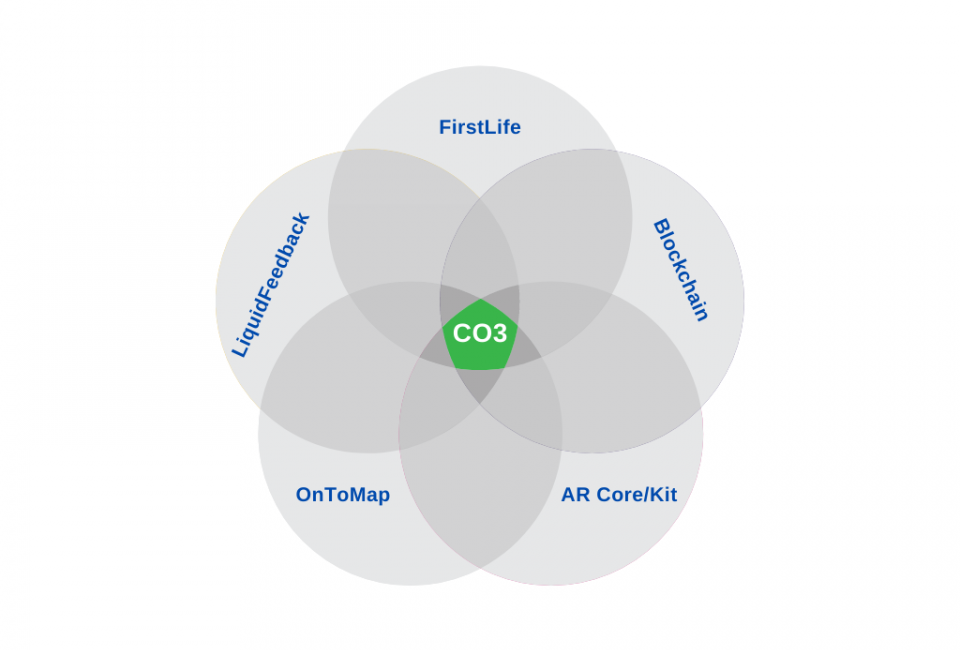
The European CO3 project is developing modulable open-source software to apply in citizen participation processes
Three pilot tests in Paris, Athens and Turin are getting underway in the first few months of 2021 to get citizens involved in defining policies and taking public decisions which are usually taken by administrations, institutions and entities. They will be doing so within the framework of the European research project CO3. Transformative impact of disruptive technologies in public services, which has developed a digital platform for interaction among the different stakeholders involved in citizen participation processes, and via the use of disruptive technologies based on co-creation, co-production and co-management methodologies which engage all the parties affected. In 2020, the second of the project’s three years, the software which will serve as the basis of each specific participative action was developed, and after initial testing, the pilot tests are now expected to get underway.
The CP3 project is led by the Università di Torino (Italy) with the participation of Ruth Sofia Contreras and Alejandro Blanco, researchers in the Research Group on Data and Signals Processing at the Universitat de Vic – Universitat Central de Catalunya (UVic-UCC). Both researchers are part of an interdisciplinary team that includes entities, companies and research centres in Greece, Italy, France and Spain. “More and more town halls, for example, are launching websites, mobile apps and other digital resources to encourage citizens to participate in decisions, but in practice these participation forums are seldom used, or their theoretical objectives don’t match their practical application”, Ruth Contreras says, pinpointing the point of departure of this initiative.
Software adaptable to each project
The second year of C03, 2020, has been wholly spent on developing the software underlying the platform where institutions and citizens will interact, which is now in the final co-production phase. Throughout this year, the developers of the disruptive technologies have delivered the software, which is comprised of ten modules, four of them visible and six of them invisible to users, which makes it incredibly flexible. “This enables the end application to be totally different for each project where it is used, as it can be adapted to the needs of each specific case via the programming”, says Ruth Contreras. According to this researcher, via a website and mobile app, technologies like geolocated social media, augmented reality and tools to participate in surveys, debates or votes can be used depending on the specific needs in each case.
Addressing social issues via three pilot tests
Despite the fact that the development team has undertaken the first usability testing of the application this autumn, the third phase of the project will get underway next year, in which the software will be implemented in three pilot tests in Athens, Paris and Turin. Some of these adaptations to practical, specific and real cases were supposed to launch this autumn but were delayed because of the COVID-19 pandemic.
In Athens, the implementation of the software in the pilot test will be associated with a project by an NGO which will use it to create a support network for the homeless, who comprise a very large group in that city. In Paris, it will be transferred to an application which will give voice to people currently living in the area where the 2024 Olympics will be held to allow them to contribute to defining the new setting. And in Turin, the software will be used to launch a shared social housing project which aims to help to solve the housing problem in this city.
Moving ahead despite the pandemic
The researchers view this past year positively overall. Even though some of the project’s actions have had to be postponed because of the pandemic, “all the partners involved have been able to continue working online, and even though it hasn’t been the ideal situation, the most important thing is that we have been able to make headway in the development”, says Ruth Contreras. The key to the project, this researcher asserts, is the co-creation process as the working methodology, which “entails getting all the affected parties involved and designing the product hand-in-hand with everyone who will use it”. During the pandemic, this work process has proven to be a drawback that has forced some of the scheduled participation activities to be cancelled, transformed or postponed. “We have adapted the calendar and adjusted the methodology in order to continue working”, says Contreras.
CO3 is a project financed by the European Horizon 2020 programme (subsidy 822615), it has an overall budget of almost €3.2M and it is being led by the Università di Torino (Italy).